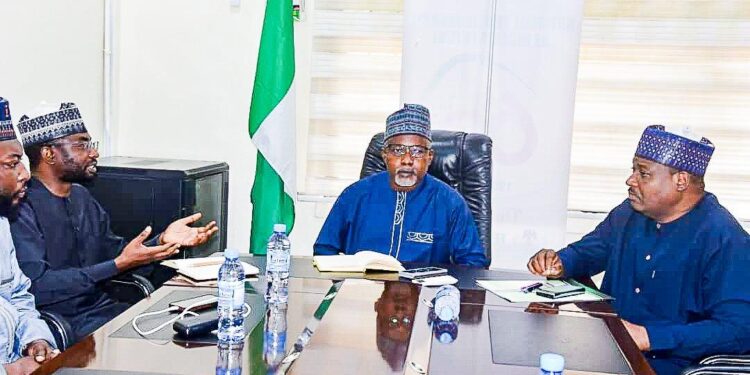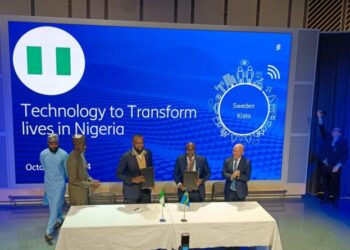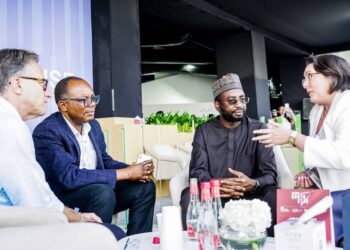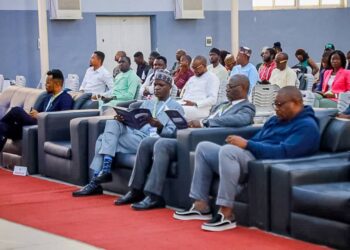BY ANTHONY ADA ABRAHAM
NITDA DG, Kashifu Inuwa, Visits Minister of Education to Strategize on Achieving 70% Digital Literacy by 2027
In a bid to accelerate the federal government’s commitment to digital literacy, the Director-General of the National Information Technology Development Agency (NITDA), Kashifu Inuwa, recently met with the Minister of Education, Dr. Yusuf Sununu, to explore avenues of collaboration. The meeting, held in Abuja, centered on aligning NITDA’s Digital Literacy for All (DL4ALL) initiative with the Ministry of Education’s efforts to achieve President Bola Ahmed Tinubu’s mandate for nationwide digital literacy.
During the discussion, Kashifu Inuwa revealed that the ambitious target of the DL4ALL initiative is to achieve at least 70% digital literacy by 2027, with plans to train 50 million Nigerians across the country. “This initiative is critical to ensuring that citizens are equipped with the necessary digital skills to thrive in the 21st century,” Inuwa stated, emphasizing the agency’s commitment to providing widespread access to digital education.
Recognizing the importance of this initiative, Dr. Sununu immediately directed the establishment of a Technical Working Group (TWG) to include all relevant agencies. This group will be tasked with driving the implementation of the digital literacy agenda and ensuring its objectives are met. “We are fully committed to this cause, and with the establishment of the TWG, we will work collectively to deliver on the president’s vision for a digitally literate Nigeria,” the Minister affirmed.
The collaboration between NITDA and the Ministry of Education marks a significant step towards transforming the nation’s educational landscape, ensuring that digital skills become a core component of learning across all levels of education. This initiative is expected to enhance not only the country’s workforce but also its capacity for innovation and economic development.











